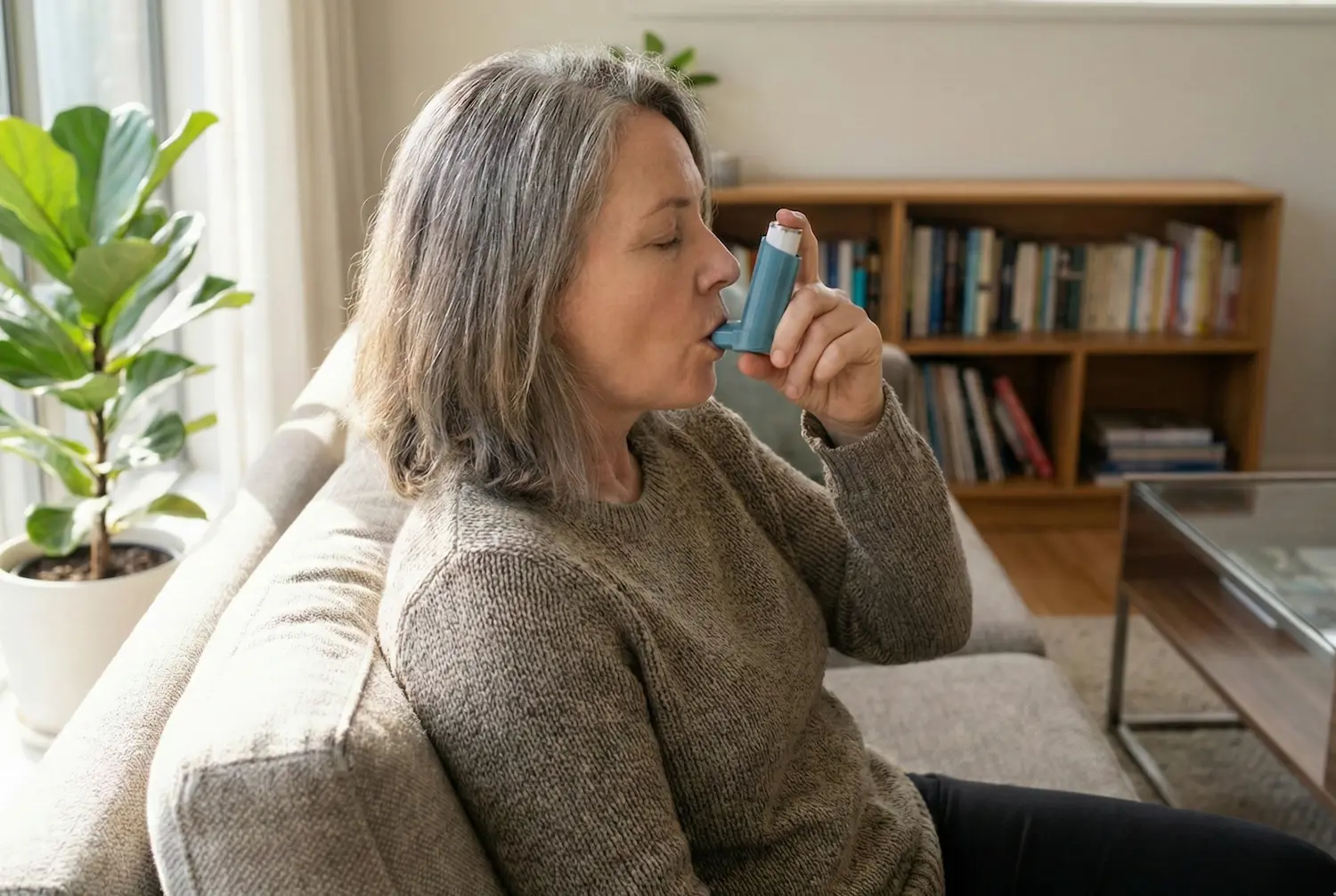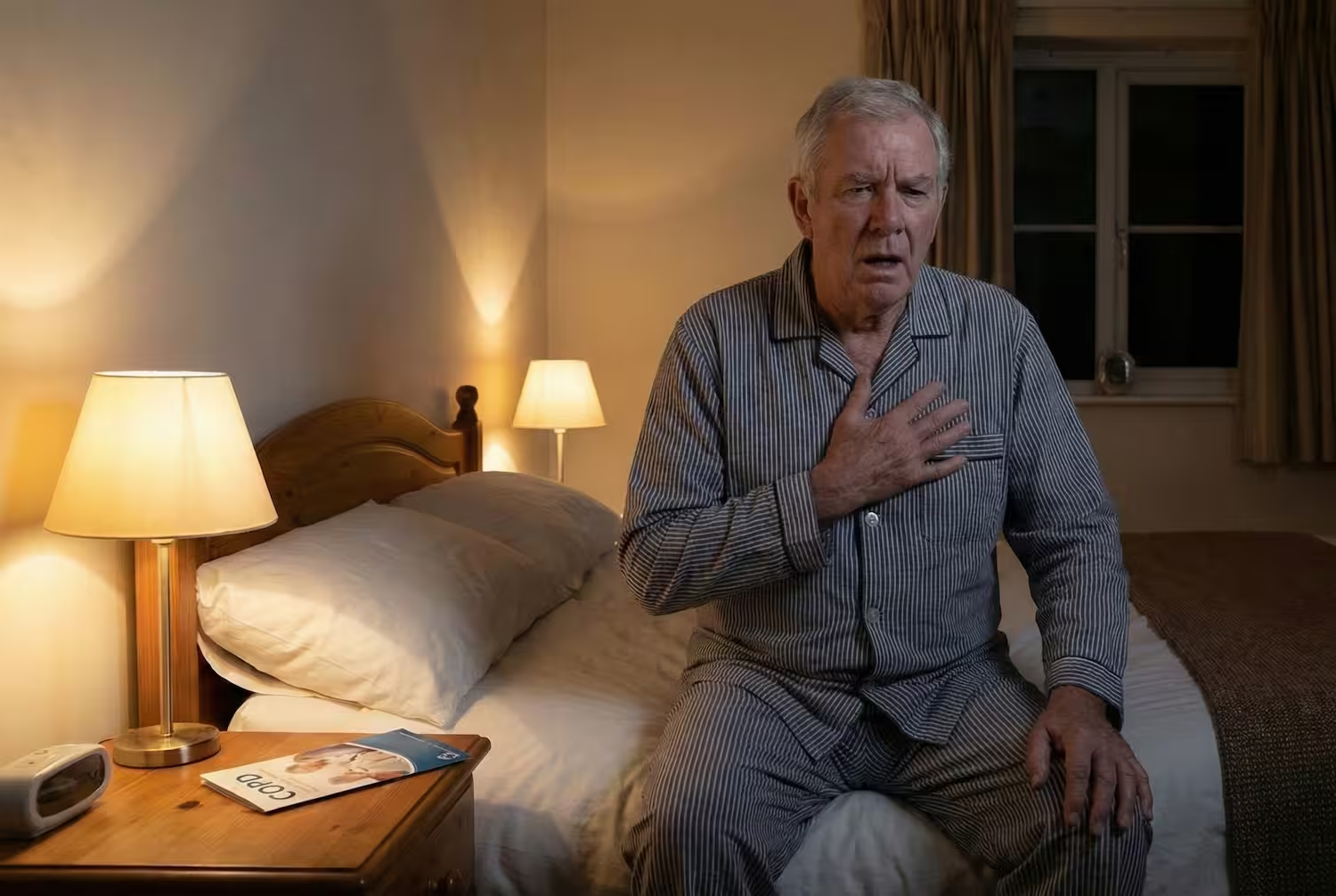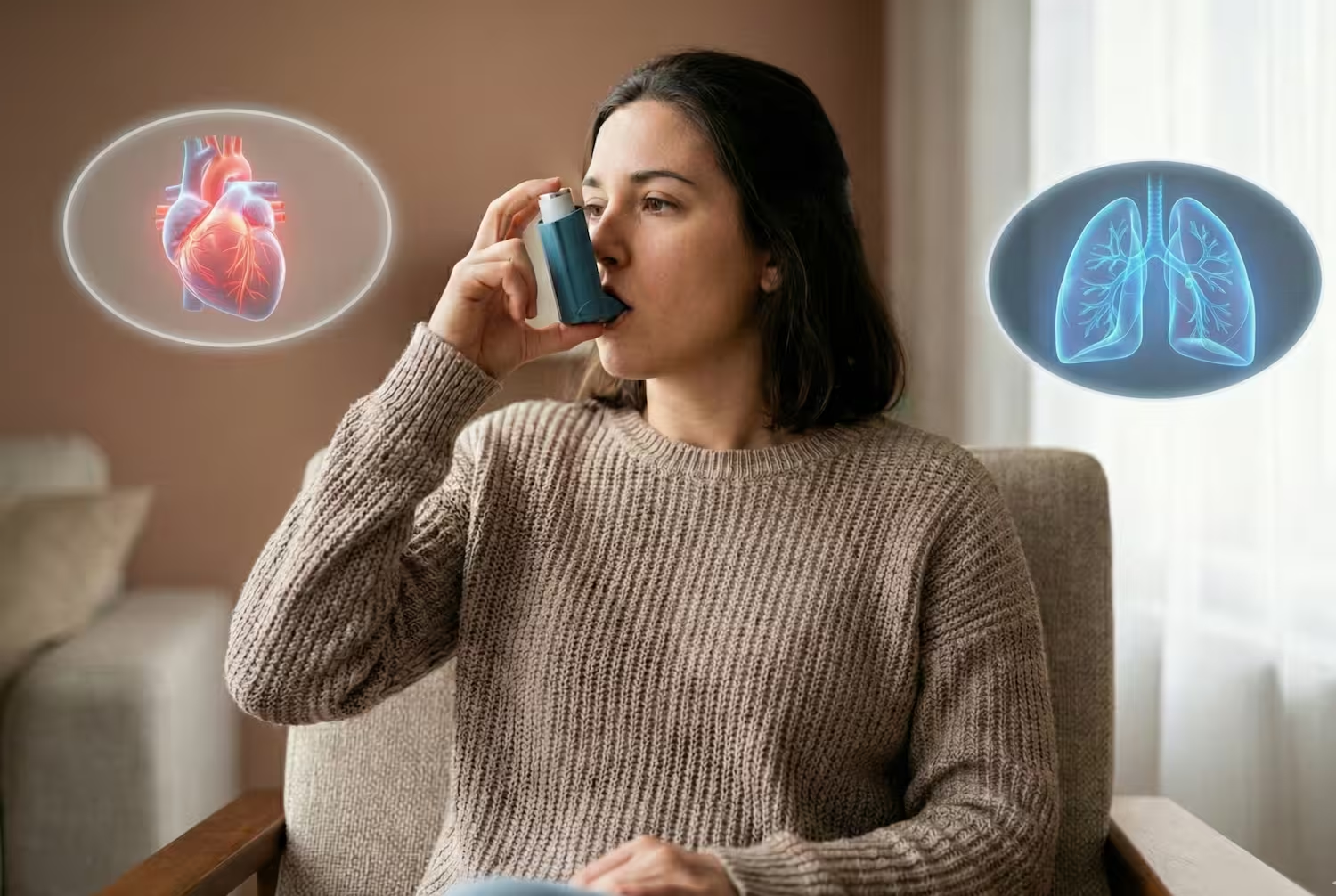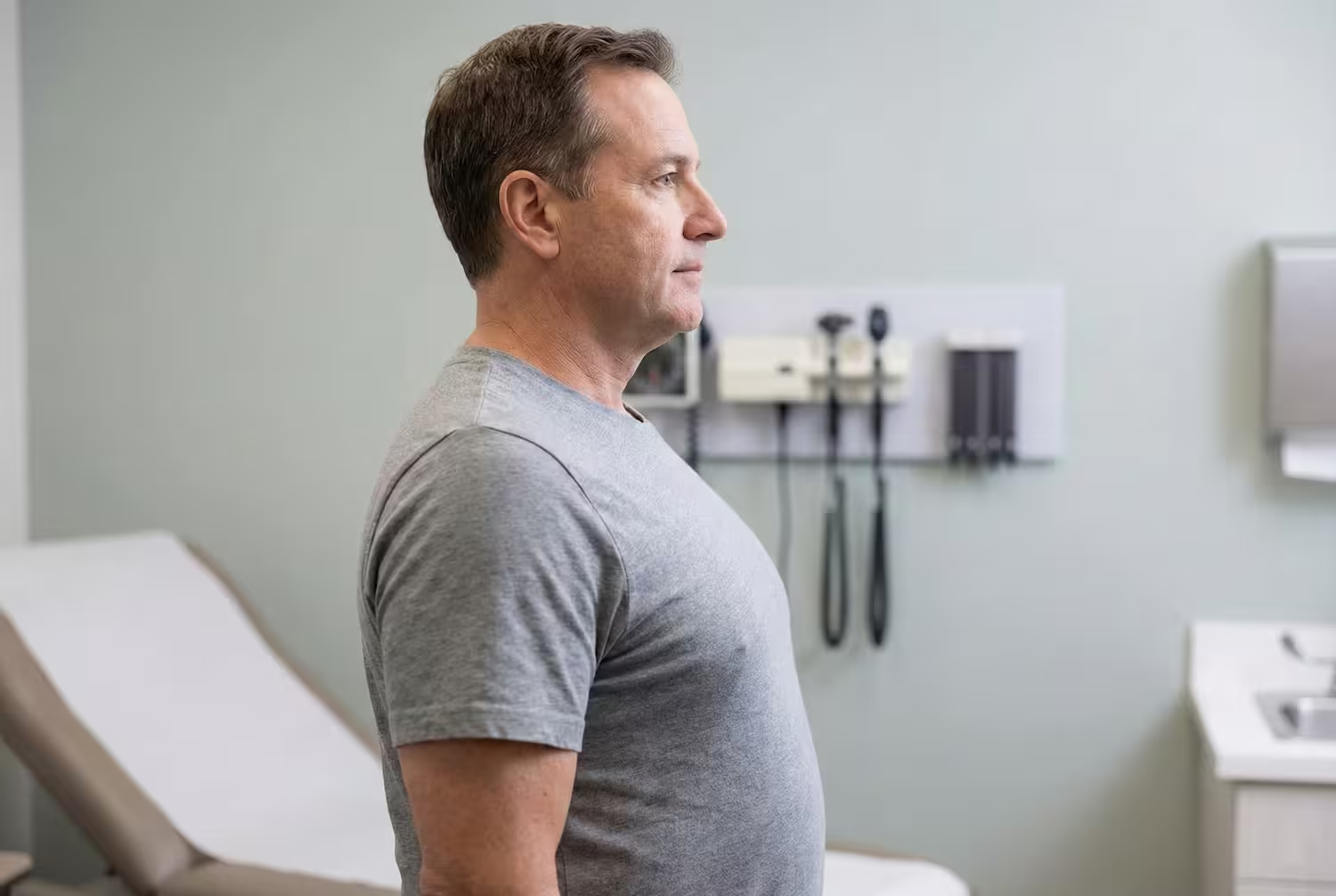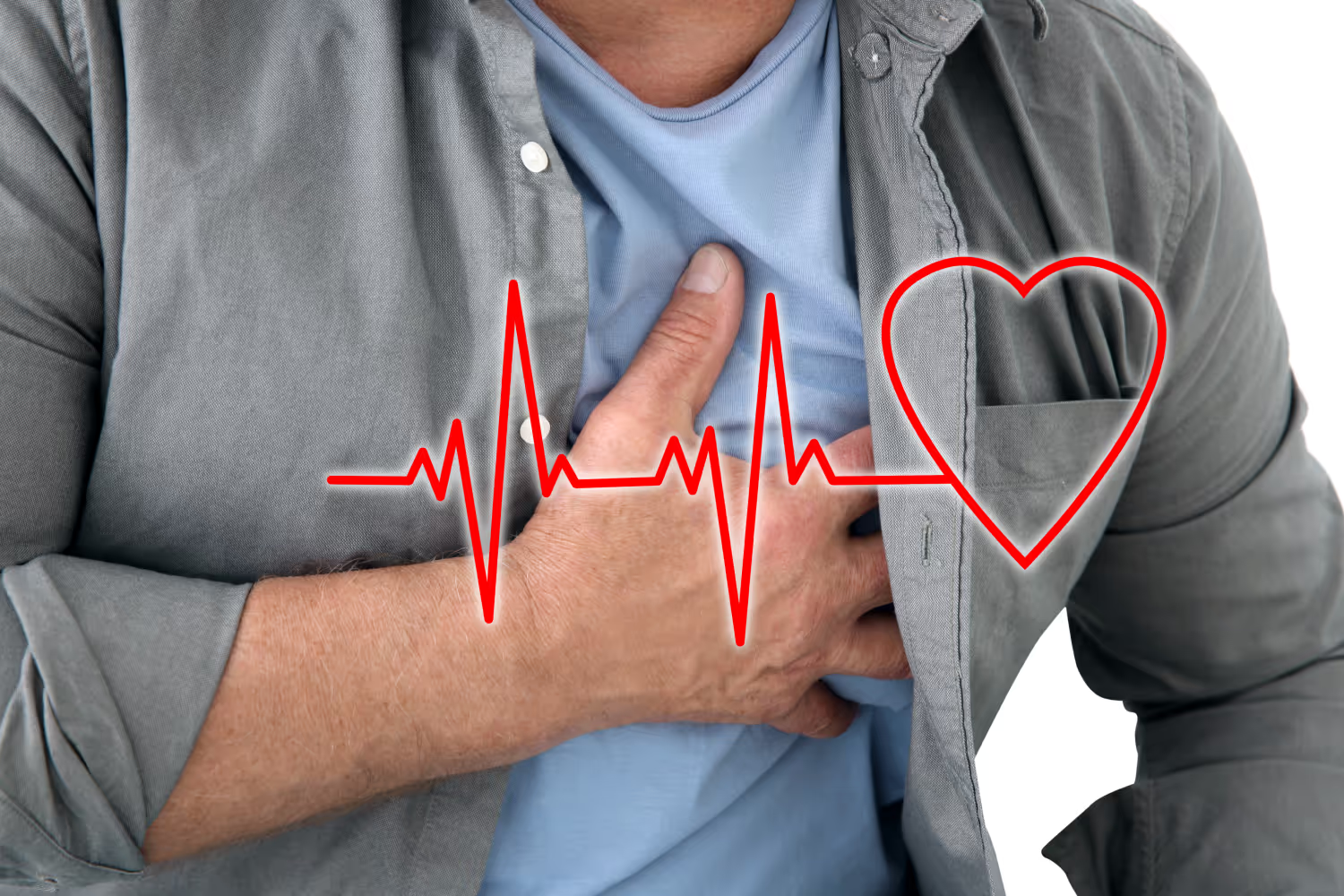
Having an irregular heartbeat can be a scary feeling. If your heart races, pounds, or skips a beat for a seemingly unexplained reason, it’s easy to start worrying about what’s going on.
Heart palpitations can often go hand-in-hand with anxiety and feelings of nervousness — but can anxiety cause heart palpitations? Moreover, what are palpitations, and what do they feel like?
Today, Carda is here to talk about heart palpitations and their connection to anxiety. We will cover when they can become dangerous and if underlying conditions can influence palpitations. Read on to support your pulmonary health and overall wellness.
What Are Heart Palpitations?
Heart palpitations are when your heart beats out of rhythm. Palpitations can present as a flutter or rapid heartbeat, or a slower, stronger heartbeat, that occurs briefly before normal rhythm returns.
What Do Heart Palpitations Feel Like?
Heart palpitations can feel like your heart is fluttering or beating too quickly. Sometimes it might even feel like your heart is racing inside your chest.
They can also feel like your heart is beating too slowly (like it skips a beat, thumps, or pulses strongly in your chest). Either way, palpitations can make it seem like your heart temporarily “flip-flops” around in your chest.
Does Anxiety Cause Heart Palpitations?
Yes, anxiety can sometimes cause heart palpitations. Anxiety is your mind and body’s reaction to a perceived threat, and it activates your autonomic nervous system, telling your body to go into “fight or flight” mode in order to protect you from what it views as a danger.
As part of “fight or flight” mode, your nervous system tells your body to increase its heart rate, which is why you might experience anxiety-related heart palpitations, especially during stressful situations.
What Are Some Other Symptoms of Anxiety?
In addition to heart palpitations, you might also experience other general symptoms of nervousness when you feel anxious. For example, you might notice your stomach begin to feel agitated as if it is “twisting into knots” or as if it drops and feels like a “pit.”
Nausea, high blood pressure, a racing heart, a flushed face, tense muscles, and sweaty palms are additional physical symptoms of anxiety. If anxiety heightens or becomes an anxiety attack, you may experience breathing difficulties like hyperventilation, chest pain, and difficulty speaking.
Can Heart Palpitations and Anxiety Indicate an Underlying Condition?
Anxiety is one of the most common causes of heart palpitations. However, there can be other underlying conditions that influence the two.
Heart conditions can also influence anxiety and cause palpitations. Atrial fibrillation is a heart condition that presents with palpitations, which can, in turn, cause blood clots to form in the heart.
Myocarditis, which occurs when the heart muscles become inflamed from a viral infection, is another heart condition that presents with heart palpitations.
Heart disease, or any other underlying medical conditions that affect the structure of the heart muscle, also often cause anxiety (and, in turn, heart palpitations).
Can Heart Palpitations Become Dangerous?
If heart palpitations persist past a few minutes, or if they repeatedly happen to you, then this could be a sign that you have an underlying medical condition that could pose a danger to your health.
With atrial fibrillation, for example, the blood clots that form place you at high risk for stroke or other heart diseases. Additionally, because stroke or other heart diseases can also cause anxiety, heart palpitations can become dangerous if they are due to underlying heart disease.
You might wonder how you can tell whether you have anxiety or if something else is at play. It can be scary if you experience heart palpitations and anxiety, but that’s why we’re about to walk you through when you should talk to your doctor.
When Should You Consult Your Doctor About Heart Palpitations and Anxiety?
If you experience palpitations that last for more than a few minutes, you should talk to your doctor about your symptoms. Even if you experience palpitations that resolve quickly, if you frequently experience them as opposed to just once or twice, you should also talk to your healthcare provider about your experience. Anytime you experience consistent palpitations for an unexplained reason, it’s time to bring it up with your doctor.
Additionally, if you experience heart palpitations alongside chest pain, nausea, or shortness of breath, these are heart attack symptoms, and you should call 911 immediately.

How Can a Doctor Rule Out Life-Threatening Causes of Heart Palpitations?
When you bring up palpitations to your healthcare provider or cardiologist, they will likely ask you a few questions about your symptoms, including what the palpitation felt like, how long it lasted, and how often it has occurred so far.
Your doctor might also want to know what you were doing when you experienced your heart palpitation and if you experienced any other symptoms at the same time.
To rule out life-threatening causes, your doctor will likely run some diagnostic tests, including blood tests, a urine test, and an exercise stress test. The exercise stress test can tell them how your heart performs under physical exertion.
Additionally, they can run an electrocardiogram (EKG) test, an echocardiogram (a heart ultrasound), or a Holter monitoring test:
- Electrocardiogram: An EKG test looks at your heart's electrical activity to measure the rate and rhythm of your heart's upper and lower chambers as they contract. This test can help determine whether your heart muscle has damaged, abnormal, or overstrained sections.
- Echocardiogram: An echocardiogram, or a heart ultrasound, is a test that generates pictures of the heart. The test can indicate how blood flows through the heart and its valves so that your healthcare provider can detect any abnormalities in how your heart pumps blood and maintains its blood supply.
- Holter Test: A Holter monitoring test allows a machine to monitor your heart rate over a period of twenty-four to forty-eight hours. The monitoring machine is small, and you can easily wear it for this time period. The results can help your provider to rule out heart arrhythmias due to heart disease or a structural abnormality.
How Are Heart Palpitations Caused By Anxiety Diagnosed?
Most likely, your doctor will conduct other tests as a means to rule out an underlying medical condition. If they decide that you are not at risk for any other underlying medical condition or cause for your heart palpitations, then they will likely attribute it to anxiety.
To confirm that your heart palpitations are present due to anxiety, your doctor might also run diagnostic tests that evaluate you for an anxiety disorder. They may have you take a test that compares your results to the Diagnostic and Statistical Manual of Mental Disorders (DSM-5), or they may have you take another psychological questionnaire and score your results against the criteria for anxiety.
Additionally, your healthcare provider may refer you to a psychologist for a mental health evaluation to further explore your anxiety diagnosis. Panic disorder and generalized anxiety disorder are potential diagnoses, but your doctor will work with you to confirm your specific situation.
A psychologist specializes in mental health conditions like anxiety and can offer many different treatments through therapy, such as cognitive behavioral therapy (CBT). They may also recommend relaxation techniques and practicing deep breaths.
The Bottom Line
Heart palpitations occur when your heart flutters, races, thumps, or skips a beat out of rhythm. Anxiety can cause palpitations due to feelings of nervousness and fear that activate your nervous system's fight or flight response.
While most heart palpitations are common reactions to anxiety, they can sometimes indicate an underlying condition. In rare cases, heart disease can cause anxiety and heart palpitations.
If you think you are at risk for heart disease, talk to your primary healthcare provider about the next steps and treatment options. They might recommend participating in a cardiac rehabilitation program as part of your recovery and prevention journey.
Here at Carda, we put the patient's support needs above all else, which is why we've designed a virtual, at-home cardiac rehabilitation program. Virtual cardiac rehab has a huge potential for personalization. You can choose where and when you do your rehab and are assigned a clinical exercise physiologist to manage your case.
Without having to worry about waitlists, switching providers each visit, transportation, or parking — all factors that can be a hassle with in-person rehab — our program is designed for you to engage where you want when you want. Enhance your cardiac rehab, and your overall health and wellness, today with Carda.
Sources:
Heart Palpitations: Symptoms, Causes & Treatment | Cleveland Clinic

